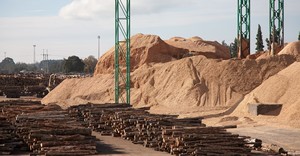Sharing our knowledge to secure our future
 Science is playing a progressively larger role in unravelling the many complex and interlinked challenges facing global communities.
Science is playing a progressively larger role in unravelling the many complex and interlinked challenges facing global communities.
Scion’s management and senior scientists participate in a number of international collaborations aimed at addressing some of these challenges. One such collaboration is the Knowledge Based Bio-Economy Forum (KBBE), a formal cooperation between the European Commission, Canada, Australia and New Zealand to foster international cooperation in four key areas of research - food and health, bio-based industrial products, fisheries and aquaculture, and sustainable agriculture. The next forum meeting is scheduled for Australia in October 2013.
In each country there is a leader for each research theme who coordinates and develops collaborative research within that area.
“The forum is driven by the need to address global challenges,” says Dr Elspeth MacRae, General Manager Manufacturing and Bioproducts and New Zealand’s leader for bio-based industrial products on the KBBE Forum. “Scientists are working together to find ways to help address such things as the security of our food supply in a changing climate, and to investigate new economic opportunities including lignocellulosic biorefineries and bio-based substitutes for petroleum and other declining resources.
“Last year we conducted an analysis for MBIE, and assembled a roadmap of the New Zealand bio-based industrial products landscape, outlining any gaps for the industry moving forward,” says Elspeth. “This included current research and companies associated with bio-materials.
“Our focus is on harmonising standards, plant-based oils for biorefineries, natural fibre composites and producing chemicals and energy from renewable resources. Forest fibre in particular, is a large scale option for New Zealand.
“Much of the research we are doing here at Scion in the manufacturing and bioproducts area fits well with this KBBE initiative. We are doing some exciting work on wood fibres for use in bioplastics, and renewable chemicals used in bio-adhesives and bio-resins. Our license with Sonae Industria Group for our wood fibre dice technology, or Woodforce, is a good example of this.”
According to Biopolymer and Chemicals Science Leader Dr Alan Fernyhough, who attended a KBBE workshop on natural fibres and composites in Montreal in July with materials scientist Marie Joo Le Guen, the growth of composites continues unabated.
“The workshop was a very useful day of talks and discussions. Many of the international teams are working on similar developments. There is work being done on using wood and other natural fibres in composites, nanofibre composites, and breaking down lignin and using it in resins, or making other bioproducts such as bioadhesives.
“Another example is enzyme retting of natural fibres. This is where enzymes are used to separate fibre from non-fibre tissue in stems, which is proving particularly valuable for hemp and flax.
“What became apparent from our discussions was that there were areas of concern common to all countries that we need to work together in solving. For example the secure and sustainable supply of quality feedstock, and the logistics of processing plants – location, costs, integration with biorefineries.
“Unification on standards and protocols was another important theme, especially with increasing globalisation. For New Zealand, the emphasis was placed on high performance in thermoplastic composites – both in wood and non-wood, and the variability in fibre sources.
“Scion is already doing a lot of work in this area, particularly with composites, biofoams, lignin bioplastics, recyclability and 3D printing.”
